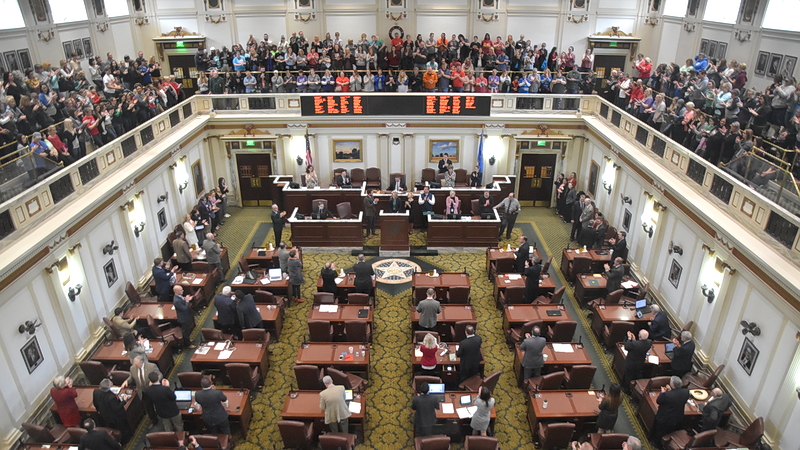Last Updated on March 15, 2021, 7:00 PM | Published: March 15, 2021
OKLAHOMA CITY (Free Press) — A bipartisan House bill that would amend the process for juvenile record expungements passed out of the House of Representatives on Monday, March 8th with a vote of 86 to 9.
HB 1799
House Bill 1799, authored by Representative Nicole Miller, R-Edmond (HD-82), would simplify the requirements for adolescents or adults with juvenile records to have their records concealed.
The measure would allow the juvenile, their legal guardian, or their attorney to file for expungement orally or through a written petition at the time the case is before the court for a final review.
In an interview with the Free Press, Rep. Miller said the legislation would remove barriers for juveniles trying to improve their circumstances.
“We’ve all done things probably in our youth not thinking as wisely as we would have in later years of our lives with a little bit more maturity,” Miller said. “If this is something that can help those who are truly moving forward and are making changes in their lives, then why should we be the ones to hold them back from that?”
Miller said she worked with freshman Democratic Rep. José Cruz, D-Oklahoma City (HD-89), a major contributor in the legislation, to improve the process for juvenile expungement.
“It’s a very strong bill and it’s one that has pretty broad support on it,” Miller said. “I think it’s the right thing to do for those younger people within our segment of Oklahoma citizens.”
The difference
Cruz, a co-author of the bill, said HB 1799 would give Oklahomans a chance to begin their adulthood with a clean slate and grant them better opportunities for employment, education, and housing.
“To a lot of Oklahomans doing their best to improve their circumstance, this policy change could be the difference in failure and success,” Cruz said in a press release.
“If you’re a juvenile and you have a record, your information is public record,” Cruz said in an interview with the Free Press “So people assume that because it’s a juvenile record it’s sealed.”
“That’s a big deal because it allows juveniles to expunge their records once their case is closed. …Once you have a clean record it’s easier to get a job, housing, and all that stuff,” Cruz said.
Expungement
Under HB 1799, juvenile records may be expunged if the following requirements are met:
- The person or child has reached 18 or 19 years of age if jurisdiction of the court was previously extended. (Currently, juveniles must wait until they turn 21 to petition the court for expungement.)
- The person or child has not been arrested for any adult criminal offense and no charge, indictment, or information has been filed or is pending against the juvenile at the time of the petition for expungement.
- All court costs, restitution, fines, and other court-ordered requirements have been completed for the informal adjustment or the juvenile proceedings.
Under the statute, once the petition for expungement is successful the offense is “deemed never to have occurred and that “no such record exists with respect to the person or child.”
HB 1799 will move to be heard on the Senate floor. It would become effective by November 2021.
Brianna Garcia is a freelance journalist covering local politics and culture for Free Press. She has a degree in Journalism from the University of Central Oklahoma.













